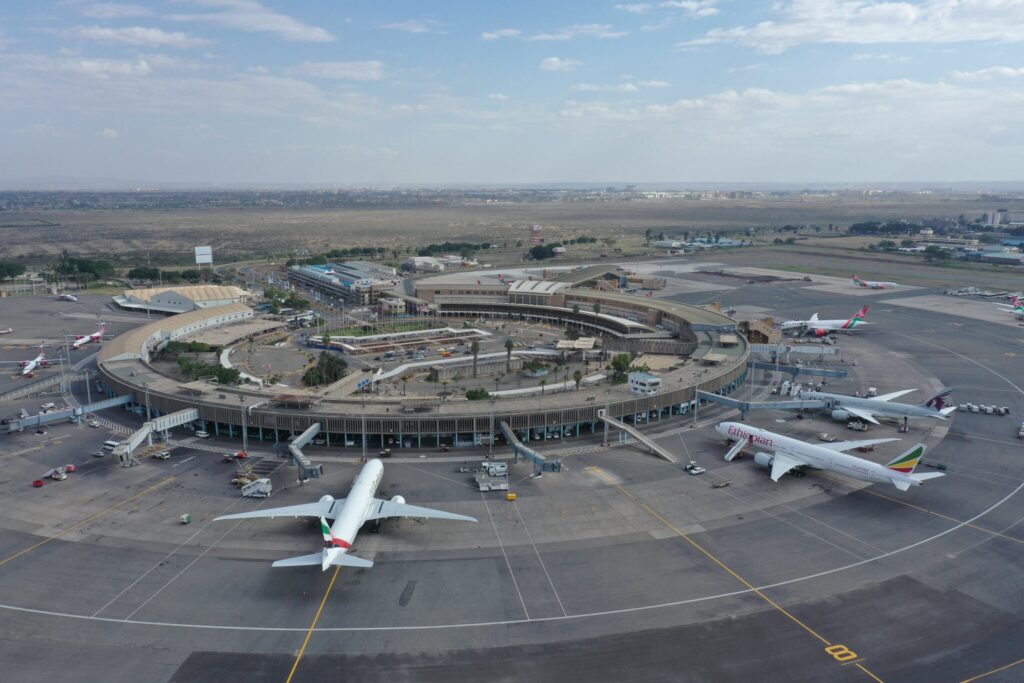Terminal 1C at Nairobi’s Jomo Kenyatta International Airport has reopened and is operating normally after a precautionary evacuation triggered by a persistent fire alarm on Sunday evening, July 20, 2025. Kenya Airports Authority (KAA) said full passenger processing, airline check-in and departures have resumed at the concourse after engineers conducted safety inspections and system resets to confirm there was no active fire risk.
The alarm first sounded at approximately 14:55 local time in the Terminal 1C check‑in area. Airport fire and rescue crews responded immediately. Although the alert was initially silenced, the system repeatedly reactivated, raising concern that an undetected issue might be present. In keeping with established safety protocols, officials temporarily shut down the alarm circuit, cleared the building and initiated a technical investigation.
While 1C was offline, all outbound flights and related passenger services were diverted to Terminals 1A and 1B. According to KAA, the contingency move was implemented smoothly: aircraft departures continued, passenger processing remained available, and the wider airport schedule was not disrupted. Operational teams coordinated airlines, ground handlers and security to minimise inconvenience until clearance to reopen was given.
“KAA appreciates the patience and cooperation of passengers and all stakeholders during the disruption,” the authority noted in confirming the return to normalcy. It described the cross‑terminal transfer as “seamless,” crediting preparedness plans that allow rapid redistribution of traffic when a facility must be taken out of service.
The underlying cause of the alarm activation has not yet been disclosed. Engineers reviewed detection, suppression and electrical systems before authorising the resumption of operations, and additional diagnostics may follow. KAA stressed that passenger and staff safety remains paramount; every alarm is treated as real until investigations rule out danger.
Travellers booked through JKIA should keep their existing itineraries. No special instructions have been issued beyond the usual advice to arrive early for check‑in and security, monitor airline communications for gate changes, and follow on‑site announcements if an alert is issued in future.
JKIA is Kenya’s primary international gateway and a key connection point for East and Central Africa, handling heavy passenger and cargo volumes across multiple terminals that include 1A, 1B, 1C and 1D. Incidents such as Sunday’s alarm underscore why redundancy across terminals matters: the ability to shift operations rapidly helps protect schedules, maintain safety margins and preserve traveller confidence when unexpected technical alerts arise. KAA said further updates will be shared publicly once investigations conclude.

